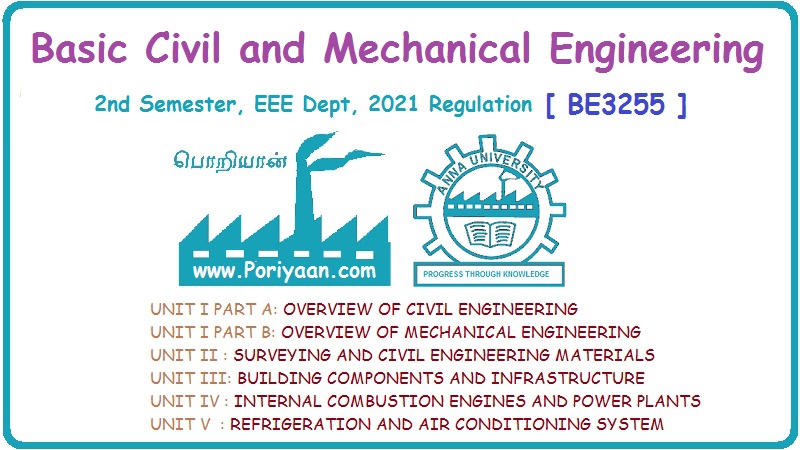Basic Civil & Mechanical Engineering: UNIT II: k. Cement concrete
Advantages & disadvantages of cement concrete
Concrete has a high compressive strength. Its strength equals that of a hard material such as stone when properly prepared.
ADVANTAGES & DISADVANTAGES OF CEMENT CONCRETE
Advantages
1.
High Compressive Strength
Concrete
has a high compressive strength. Its strength equals that of a hard material
such as stone when properly prepared.
2.
Flexibility of Strength
Proportions
of concrete mix can be suitably varied to obtain the concrete of required
strength.
3.
Corrosive and Weathering Effects
Concrete
has no corrosive and weathering effects.
4.
Durability
Concrete is durable. It requires very little maintenance. It does not lose its strength with age.
5. Easy Handling and Moulding Freshly prepared concrete is plastic.
Therefore, it can be easily handled and moulded into any shape or size
according to the requirements.
6.
Water-Proof:
Concrete
is water-repellant. Hence, it is water-proof.
7.
Ease of Construction
Concrete
affords quickness and ease of construction.
8.
Light Weight Application
For
this, Light Weight Concrete can be used.
9.
Fire Resistant: Concrete is fire resistant.
Disadvantages
1.
Low Tensile Strength
Concrete
has low tensile strength. Hence, it cracks easily. Concrete is to be reinforced
with steel bars or steel meshes.
2.
Cracks due to Drying-Shrinkage
Cracks
may be caused due to drying-shrinkage and moisture movement in fresh concrete. Provision
for contraction of joints has to be made to avoid development of cracks.
3.
Cracks due to Thermal Movement
Concrete
expands and contracts with changes in temperature. Hence, cracks may be formed.
4.
Disintegration
Concrete
is liable to disintegrate by alkali and sulphate attacks.
5.
Poor Ductility
Concrete
is poor in ductility. This is disadvantageous to earthquake resistance design.
Basic Civil & Mechanical Engineering: UNIT II: k. Cement concrete : Tag: : - Advantages & disadvantages of cement concrete
Related Topics
Related Subjects
Basic Civil and Mechanical Engineering
BE3255 2nd Semester 2021 Regulation | 2nd Semester EEE Dept 2021 Regulation
